Jen Mohaupt
McMaster University, Canada
Abstract Title: Emerging sense of self: RN or team member?
Biography:
Dr. Jen Mohaupt, RN, PhD, is an Assistant Professor at McMaster University’s School of Nursing. With expertise in curriculum development, interprofessional education, crisis management, and simulation-based learning, she is dedicated to advancing nursing education. Dr. Mohaupt’s research focuses on improving educational practices and fostering collaboration among healthcare professionals. Through her work, she aims to enhance the training and preparedness of future nurses, ensuring they are equipped to navigate complex clinical environments. Her contributions to the field support the integration of innovative teaching strategies in nursing education.
Research Interest:
Background:
Interprofessional team competencies are essential in healthcare curricula. Undergraduate nursing students' participation in team resuscitation is typically limited in clinical practice, leaving gaps in their preparation for in-hospital emergencies. Strategies are needed to enhance students’ self-efficacy and clinical competency to foster team cohesiveness and effective leadership, decision-making, and collaboration in emergencies.
Research Questions:
- Can a single interprofessional code blue workshop enhance learners’ knowledge, competence, self-efficacy, and interprofessional teamwork?
- How does Bandura’s four elements of agency influence learners’ readiness to respond to in-hospital emergencies?
- Will interprofessional simulation improve learners’ readiness to respond collaboratively to in-hospital emergencies?
Workshop Description:
An interprofessional code blue workshop was developed, integrating students from four health professional programs. Each 3-hour learning session began with a pre-brief based on Brennan’s self-efficacy model1 to enhance confidence and competence. Participants rotated through four 20-minute stations: closed-loop communication, non-invasive oxygenation/ventilation, CPR, and defibrillation, followed by an integrative team-based scenario.
Methods:
Quantitative data were collected using surveys, including the Interprofessional Experiential Learning Scale2 to assess readiness for interprofessional learning and the Resuscitation Self-Efficacy Scale3 to evaluate self-efficacy. The Emergency Response Performance Tool4 was used to assess team performance during simulations. Qualitative data were gathered through semi-structured focus groups, analyzed through the lens of Bandura’s Theory of Human Agency5,6.
Results:
Pre/post-interprofessional learning scores showed significant growth (p<0.01), with the largest gains in "working together to develop a plan of care." Students felt most confident in CPR (4.32) and least confident in communication (3.65). Emerging themes aligned with the CIHC’s Competency Framework7, but also included the emerging sense of self as RN vs. team member and tensions between skills and interprofessional communication.
Conclusion:
The interprofessional code blue workshop effectively enhances nursing students’ self-efficacy in resuscitation and introduces them to interprofessional teams. Separating psychomotor skills from soft skills like communication may improve learning outcomes.

